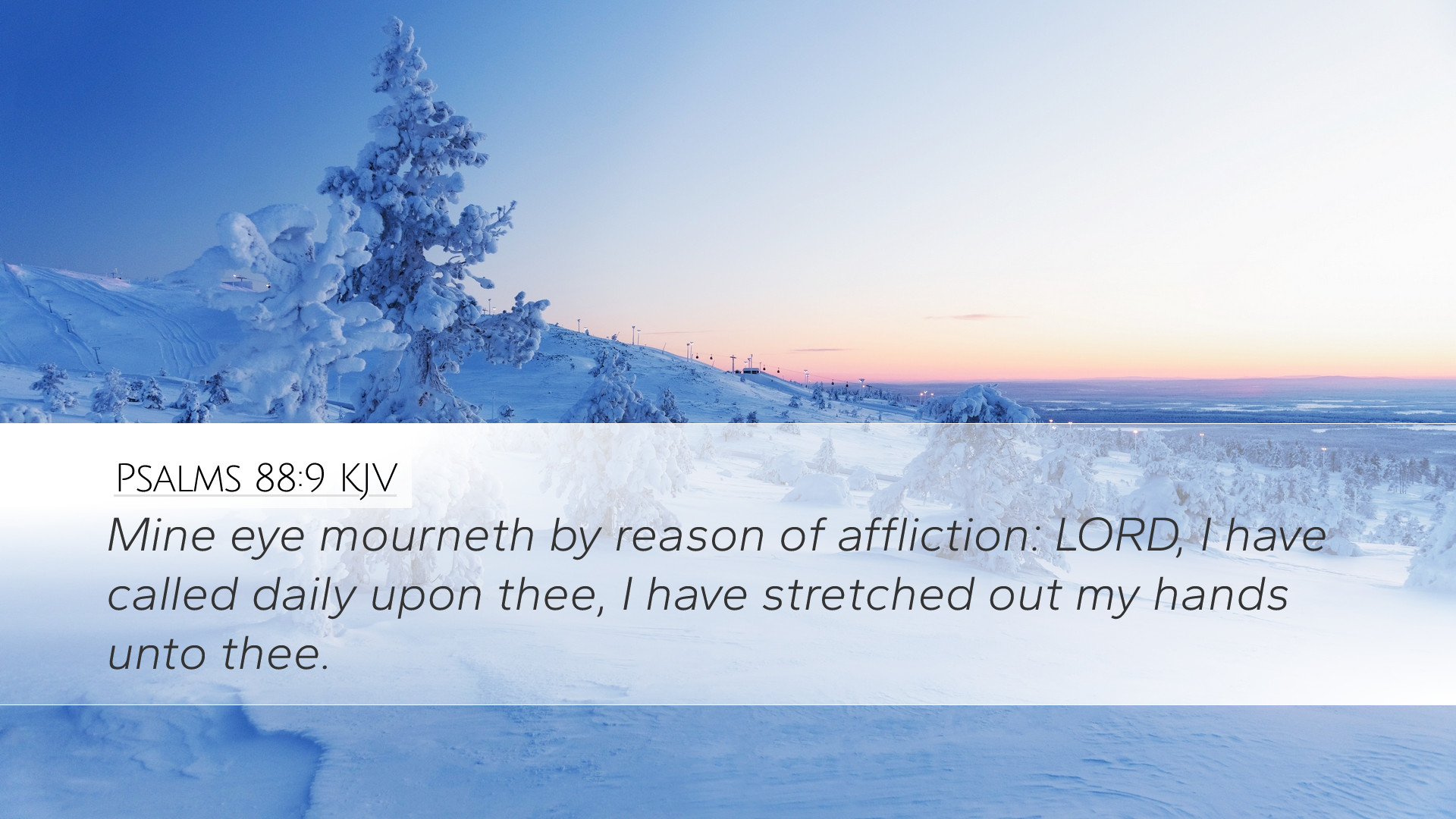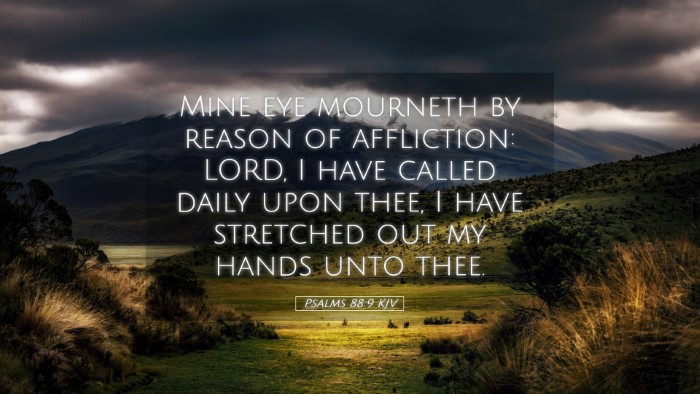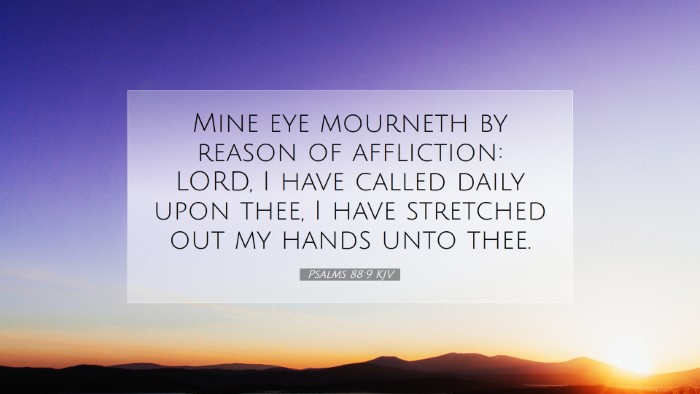Psalms 88:9 - A Commentary
Bible Verse: "Mine eye mourneth by reason of affliction: Lord, I have called daily upon thee; I have stretched out my hands unto thee."
Introduction
Psalm 88 is a hauntingly poignant lament attributed to Heman the Ezrahite. It serves as an expression of deep sorrow and despair, highlighting the isolation one can feel in the midst of suffering. This verse, Psalms 88:9, encapsulates the emotional turmoil faced by the psalmist as he grapples with his affliction and seeks solace in God.
General Context
The psalm opens with an earnest plea for help, establishing a tone of desperation while capturing the feelings of abandonment. Through this emotional landscape, the writer navigates his afflictions, both spiritual and physical, revealing insights into the nature of suffering and the human condition.
Verse Analysis
"Mine eye mourneth by reason of affliction"
Matthew Henry notes that the psalmist refers to his "eye" as a symbol of his heartache and persistent grief, suggesting that physical suffering has led to spiritual mourning. The eye becomes a window to the soul, indicating that the burden he bears is visible, affecting his very countenance.
"Lord, I have called daily upon thee"
Albert Barnes emphasizes the intensity of the psalmist's prayers. Daily appeals to God illustrate a fervent longing for divine intervention. There is a sense of urgency and persistence that defines the psalmist's relationship with God, serving as a reminder that prayer is not merely an occasional act; it is a continual pursuit of hope amid despair.
"I have stretched out my hands unto thee"
Adam Clarke elaborates on the imagery of stretching out hands, which represents a posture of supplication and surrender. This indicates a physical embodiment of the psalmist's plea for mercy and grace. His extended hands symbolize both a desire for God’s assistance and an acknowledgment of his own vulnerability, reinforcing the theme of reliance on divine strength amid personal weakness.
Theological Implications
This verse raises critical theological questions concerning the nature of suffering. The psalmist's raw emotion opens up discussions on several key themes:
- The Experience of Suffering: The acknowledgment of suffering as part of the human experience resonates deeply within Christian theology, reminding believers that they are not alone in their afflictions.
- God's Silence: The fervent cries of the psalmist juxtaposed with perceived silence from God prompt reflections on the nature of divine response; why God sometimes appears distant in our suffering.
- Hope and Despair: The layering of hope through daily cries indicates that even in deep despair, the act of prayer is a vital testimony of faith.
Pastoral Applications
For pastors and church leaders, Psalms 88:9 serves as a vital text when addressing congregational suffering. It serves to:
- Validate Emotional Pain: The authenticity of the psalmist's grief legitimizes the emotional struggles of congregants, fostering a supportive environment for those in despair.
- Encourage Persistent Prayer: This passage can be a powerful call for the community to engage in prayer, not only in moments of joy but especially in times of distress.
- Facilitate Discussions on Suffering: Pastors can use this verse to lead discussions about God’s presence in our pain and the mystery surrounding divine silence.
Concluding Thoughts
Psalms 88:9 poignantly encapsulates the struggles of a soul in anguish while simultaneously reaching out to God in hope. It reminds believers that the journey through suffering can be a profound aspect of their faith, underlining the importance of persistent communication with God. In both the lament and the longing, the psalm offers a pathway for faithful resilience amid life's trials.


